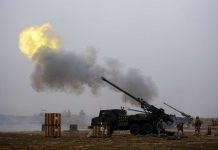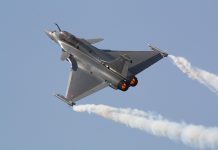
The potential destruction of Rheinmetall’s defense plant in Ukraine by Russian forces could become a pivotal and symbolic strike if production is fully established, according to military analyst Igor Korotchenko. Speaking to TASS, Korotchenko, editor-in-chief of *National Defense*, suggested that attacks on the facility would likely target it only once operational, with all production equipment in place.
Korotchenko emphasized that striking a non-operational or empty facility would hold little strategic value. He argued that a carefully timed assault—once machinery and weapons systems are fully functional—would have the greatest tactical and symbolic impact. “It makes sense to act when technological equipment is set up and production has started,” he stated, underscoring the importance of timing for maximum media visibility. Such an action, he explained, would not only assert Russia’s position against foreign military infrastructure in Ukraine but also amplify the conflict’s political messaging through extensive media coverage.
Previously, Kremlin spokesperson Dmitry Peskov supported this stance, calling the facility a legitimate target for Russia, given that a German defense facility within Ukraine poses a direct security concern.
Rheinmetall’s CEO, Armin Papperger, recently announced plans for additional facilities, including a gunpowder factory and plants for ammunition and air defense systems, marking a substantial increase in Ukraine’s defense production capabilities. As Germany’s largest defense contractor, Rheinmetall has significantly boosted profits amid the ongoing Ukraine conflict. In 2023, its revenue rose 12% to €7.1 billion, with a net profit increase of 9%, driven by demand for defense equipment in Ukraine and allied nations.
In a recent interview with Ukraine’s TSN, Papperger confirmed that Rheinmetall’s first plant in Ukraine is operational, with a second on the way. These facilities are initially focusing on servicing armored vehicles, specifically infantry fighting vehicles and tanks. By year-end, the plant aims to assemble Lynx infantry fighting vehicles, strengthening Ukraine’s mechanized capabilities. Holding a 51% stake in this joint venture, Rheinmetall has a considerable role in Ukraine’s defense industry.
Future plans include building facilities for ammunition and anti-aircraft systems, with Rheinmetall developing four plants across Ukraine—a bold expansion that not only bolsters Ukraine’s defense but also underscores Germany’s role in the region’s defense infrastructure.
This scenario highlights key intersections of defense strategy and geopolitics. Russia’s intent to target foreign defense infrastructure in Ukraine signals a new phase in the conflict, where such assets are now primary targets. This stance serves as a caution to other defense corporations considering similar expansions, raising questions about the extent to which foreign companies are willing to invest in Ukraine’s defense sector amid rising risks of confrontation with Russia.
The expansion of Rheinmetall’s operations suggests Germany’s increasing involvement in Ukraine’s defense strategy, carrying broader implications for NATO and EU defense policies. Integrating German defense technology within Ukraine is likely to heighten diplomatic tensions between Russia, NATO, and the EU, positioning Germany as a crucial supporter of Ukraine.
If these plants are attacked, it would likely attract intense media coverage and further politicize international aid, highlighting the broader stakes in supporting Ukraine’s resilience and the strategic backing from Western allies.




